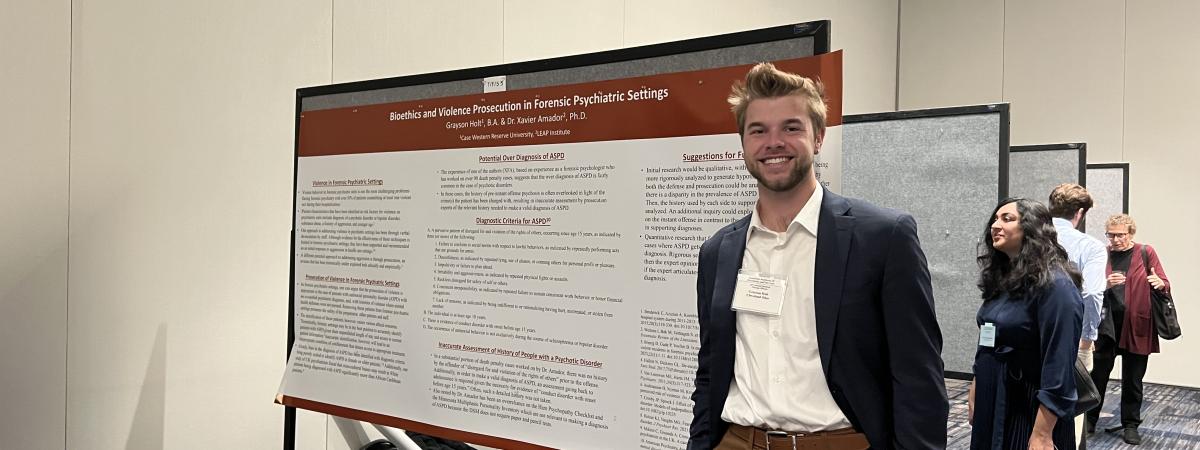Class Year: May 2024
Degree Program: Master of Social Work + Master of Arts in Bioethics & Medical Humanities
What made you choose this area of study?
I chose to pursue this course of study following my time working as an aide in an inpatient psychiatric unit. While I worked there, I was exposed to aspects of the human experience I had never seen in such a concentrated form. The people I worked with were suffering, and many of them were being held involuntarily. Additionally, the patients I worked with could be described as marginalized or on the borders of society, facing severe mental illness, substance abuse, homelessness and a variety of other challenges. Despite this, the people I worked with very rarely described themselves that way. During my time there, I was exposed to incredible resilience, hope, faith and the belief in a better tomorrow. By pursuing a master's of social work and a master of arts in bioethics and medical humanities, I believe I have best positioned myself to support the resiliency of the patients I serve while having the tools to engage with aspects of their lives, such as being unhoused, which is not inherently a medical problem but has clear health implications.
Why did you choose CWRU/the Mandel School?
I originally chose Case Western Reserve University for undergrad due to the wealth of opportunities I found in Cleveland and University Circle both professional and personal. When I visited campus, I was so impressed with the cultural hub that is University Circle that I immediately emailed Case Western Reserve’s admissions department and told them I would do whatever was needed to come to CWRU (I had been waitlisted at the time). It was a great decision as I have loved my time here, finding a home in Little Italy while receiving an incredible education.
Were you involved in activities outside of class? If so, what were they and why did you get involved?
Outside of class, I served as director of social work at CWRU's Student Run Health Clinic. I chose to pursue that role in order to ground my education on obstacles to receiving health care via hands-on clinical experience. With a mission to provide high quality care to underserved populations from Greater Cleveland communities, the clinic has taught me about the myriad of influences external to a clinical encounter that shape care.
What's your favorite thing about CWRU/the Mandel School or your favorite memory?
My favorite memory while at CWRU was walking in the Feast of the Assumption parade last year dressed in yellow, red, and blue and equipped with a battle axe as a Swiss Guard. I’ve lived in Little Italy for nearly four years now, and one of my central goals during my time here has been to immerse myself in its community. Part of why I cherish this memory is I believe it is important for students to know who they are living with, in part because I recognize not all long-term residents are fans of students living in Little Italy. Therefore, my obligation as a resident was heightened to get to know who I was living with to create meaningful relationships. My invitation to the parade was not only a fun and exciting opportunity, but also spoke to the value of these relationships.
As a graduating student, what's a piece of advice/encouragement you'd like to share with current students?
In my experience, part of what made these programs so engaging is you are allowed to be daring in the problems you are trying to address. As a student, it at times may feel as though you need years or decades of experience first before trying to tackle the most pressing challenges facing our society. While humility is hugely important, I’ve found that being bold in the challenges I’ve sought to address made my education and the connections I’ve created exponentially more exciting. Over my years here, I’ve been exploring challenges in access to mental health care, the case for restorative justice or reparations and their impact on health, and have written about the architectural design of health care settings. These are large questions, yet I encourage anyone starting the same program to not shy away from whatever their largest questions are.
What are your post graduation plans?
After graduation I will start an MD at Harvard Medical School with the ultimate goal of becoming a psychiatrist.





